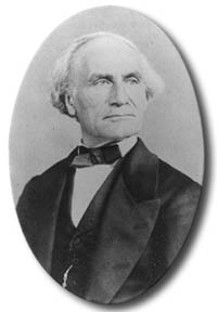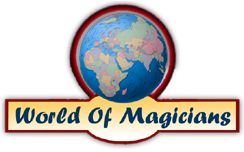Magic History
The term "magic" is etymologically derived from the Latin word magi, a term that was used to refer to Zoroastrians. Performances we would now recognize as conjuring have probably been practiced throughout history. The same level of ingenuity that was used to produce famous ancient deceptions such as the Trojan Horse would also have been used for entertainment, or at least for cheating in money games, since time immemorial. They were also used by various religions from times ancient, and were even known as far back as the early 17th century to be used to frighten uneducated populi. However, the profession of the illusionist gained strength only in the eighteenth century, and has enjoyed several popular vogues.
![]() Robert Houdin
Robert Houdin
![]() Harry Houdini
Harry Houdini
![]() Pratul Chandra Sorcar (P C Sorcar Sr.)
Pratul Chandra Sorcar (P C Sorcar Sr.)
![]() Vazhakunnam Neelakandam Namboothiri
Vazhakunnam Neelakandam Namboothiri
![]() Prof. K. Bhagyanath
Prof. K. Bhagyanath
Robert-Houdin: Robert-Houdin was born Jean Eug�ne Robert in Blois, France, on 7 December 1805�a day after his autobiography said he was. He did not know it, but he later inspired Harry Houdini to become a magican. His father Prosper Robert was one of the best watchmakers in Blois. A skillful artisan and hard worker, Prosper Robert's main ambition was to provide for his family, but he also wanted his children to climb the social ladder. Jean Eugene's mother, the former Marie-Catherine Guillon, died when Jean was just a young child. At the age of eleven, Prosper sent his son Jean to school thirty-five miles up the Loire to the University of Orl�ans. (The college was equivalent to American secondary school.) At 18, Jean graduated and returned to Blois. His father wanted him to be a lawyer, but Jean wanted to follow into his father�s footsteps as a watchmaker.

Jean�s penmanship was excellent, and it landed him a job as a clerk for an attorney�s office. Instead of studying law, he tinkered with mechanical gadgets. His employer sent him back to his father. He was told that he was better suited as a watchmaker than a lawyer. But by then, Jean�s father had already retired so he became an apprentice to his cousin who had a watch shop. For a short time, Jean worked as a watchmaker.
In the mid 1820s, young Jean saved up to buy a copy of a two-volume set of books on clock making called Trait� de l�horlogerie, or Treatise on Clockmaking, written by Ferdinand Berthoud. The book seller had put the books off to the side for Jean. He reached up to the shelf and grabbed the books. He wrapped the two volumes and handed them to the young aspiring clockmaker. But when Jean got home and opened the wrapping, instead of the Berthoud books, what appeared before his eyes was a two-volume set on magic called Scientific Amusements. Instead of returning the books, his curiosity got the best of him. From those crude volumes, he learned the rudiments of magic. He practiced at all hours of the day.
From that point when he accidentally received those books on conjuring, Jean Robert became very interested in the art. He was upset that the books he got only revealed how the secrets were done, but did not show how to do them. He found that learning from the books available in those days was very difficult because the lack of detailed explanations provided. But the books piqued his interest in the art. So Jean began taking lessons from a local amateur magician. He paid ten francs for a series of lessons from a man named Maous from Blois who was a podiatrist, but also entertained at fairs and fetes doing magic. He was proficient in sleight of hand, and he taught Jean how to juggle to coordinate his eye and hand. He also taught him rudiments of the cups and balls. He told young Jean that digital dexterity came with repetition, and as a direct result, Jean practiced incessantly
On July 3, 1845, Robert-Houdin premiered his 200 seat theatre in what he called "Soir�es Fantastiques." Not a single critic covered Robert-Houdin�s debut, but that was just as well, for in his memoirs, Robert-Houdin confessed that the show had been a disaster! He suffered from stage fright that caused him to talk too fast and in a monotone. He did not know what he was saying or doing. Everything was a blur. He believed that a trick should never fail because the magician should not present a trick that was not mechanically perfected, and this caused him to over-rehearse.
After the first show, he was about to have a nervous breakdown. He closed the theatre and had every intention to close it for good until a friend agreed that the venture was a silly idea. Instead of admitting defeat, Robert-Houdin, irked at the friend's affrontery, used this insult to regain his courage, and he continued his long run at his little theatre. At first the forty year old magician was unpolished, but soon he gained the confidence required for the stage. With each performance, Robert-Houdin got better, and the critics did come. Le Charivari and L'Illustration both said that his mechanical marvels and artistic magic was comparable to those of his predecessors like Philippe and Bosco. Even with all of this, the people still did not come to the little theatre during the summer months. This made it a struggle for him to keep it opened. To meet expenses, he sold the three houses that he had inherited from his mother.
After his mission in Algeria completed, Robert-Houdin gave his last public performance at the Grand Th��tre in Marseille, then returned to his home in Saint-Gervais, near his native Blois, where he wrote his memoirs, Confidences d�un Prestidigitateur. He also wrote several books on the art of magic. He lived happily in retirement for about fifteen years until advent of the Franco Prussian War. His son Eugene was a captain in a Zouave regiment. On August 6, 1870, Robert-Houdin heard news of his son being mortally wounded at the Battle of Worth. Meanwhile, Hessians (soldiers) captured Paris and Robert-Houdin hid his family in a cave near his property. The Hessian soldiers were very rude, according to Robert-Houdin, but he found the Polish soldiers to be a lot kinder. Four days later, Robert-Houdin was to find out that his son had died of his wounds. With the stress from that and the war, his health deteriorated and he contracted pneumonia. On June 13, 1871, he died of his illness, at the age of sixty-five.
For More Details about Robert Houdin Visit http://en.wikipedia.org/wiki/Jean_Eug�ne_Robert-Houdin
